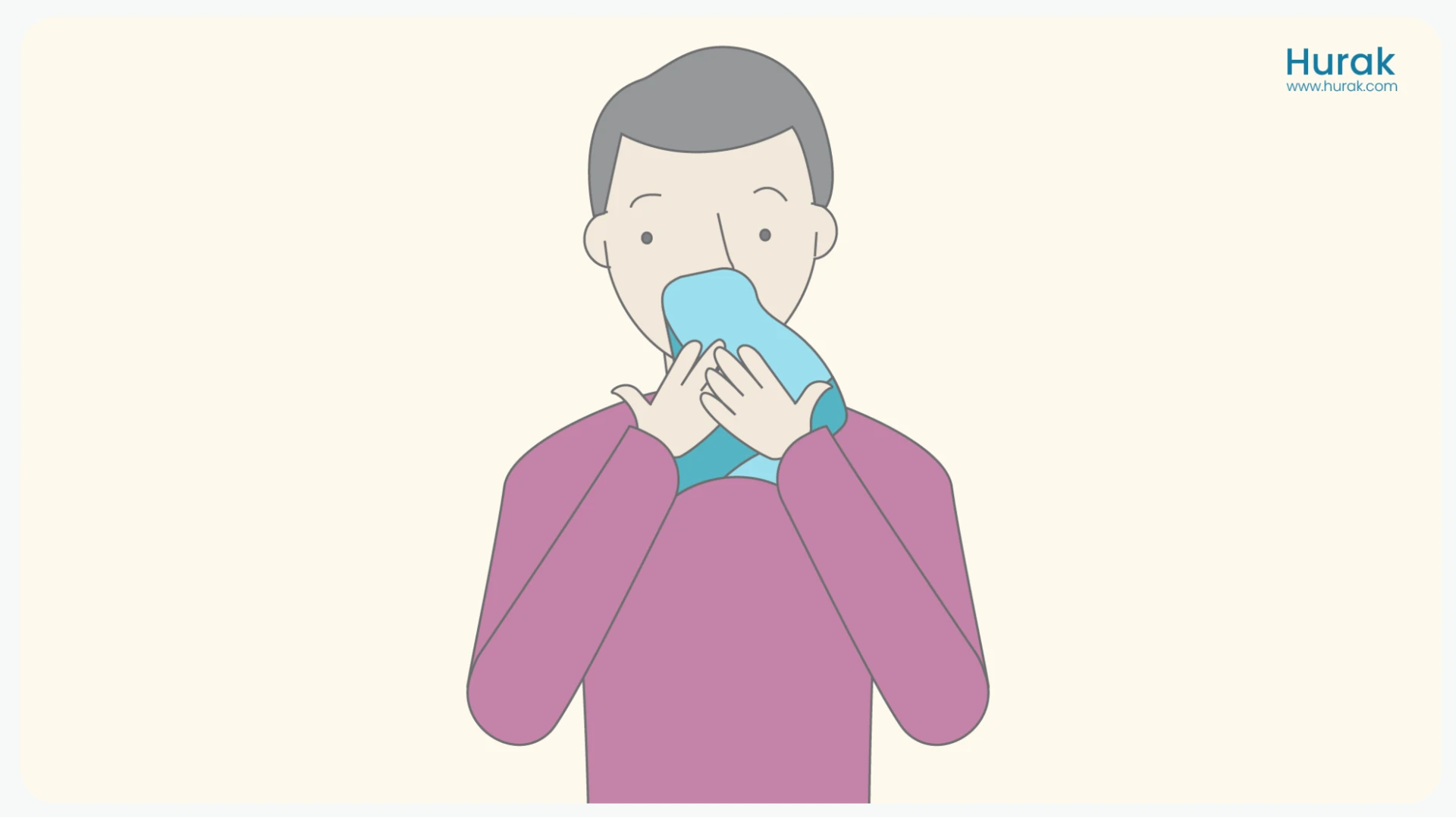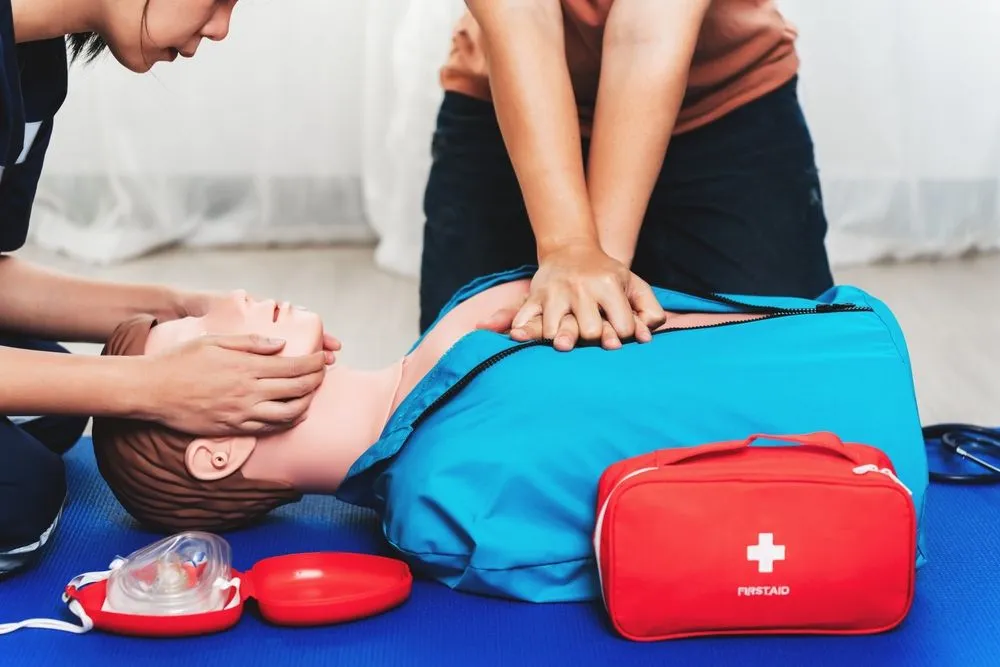Nosebleeds, also known as epistaxis, they are usually not something you should be worried about. However, for someone who has never experienced them, they can seem concerning, making them feel apprehensive. It is important to remember that it is highly unlikely that your nosebleed poses a threat to your medical health, and you generally will not need to go to a doctor. Nosebleeds are usually manageable with the proper techniques. Let’s have a look at the preventive measures and the appropriate treatment for nosebleeds.

Understanding Nosebleed
Nosebleeds are quite common and usually last from a few seconds to 15 minutes. Anyone can get one, but they are more prevalent among children and adults living in dry climates. While they can be unsettling, understanding what causes them and how to handle them can alleviate concerns.
What Causes Nosebleeds?
You need to be aware of the factors that might lead to nosebleeds; being equipped with the right information can help prevent future occurrences. Here are three common causes:
- Lack of humidity: Low humidity can dry out the nasal membranes, making them more susceptible to bleeding. Climate changes and dry air are a common cause for nosebleeds among adults
- Nasal Irritation: Allergies, colds, or sinus infections can irritate the nasal lining, leading to nosebleeds.
- Injury: A blow to the nose or frequent nose-picking can damage blood vessels, resulting in a random nosebleed.
Treatment: How to Stop a Nosebleed
If your nose starts bleeding, follow these steps for effectively to stop or control the bleeding:
- Don’t Panic: If you start bleeding from the nose, it is imperative that you remain calm. You mustn’t panic. Feeling anxious can lead to a rise in blood pressure, consequently worsening the bleeding.
- If you’re leaning back- Sit Up Straight. Lean slightly forward helps prevent blood from going down your throat; leaning slightly forward will help avoid gagging or choking.
- Pinch Your Nose: Use your thumb and index finger to pinch the soft part of your nose, right below the bridge, and hold it for about 5 to 15 minutes. This compresses the blood vessels and often stops the bleeding within the time frame given above. If you are assisting a child, ask them to breathe through their nose while remaining in the former position
- Use a Cold Compress: holding up a cold pack or even ice cubes wrapped in a cloth to the bridge of your nose can constrict blood vessels and immensely reduce the flow of blood.
- Avoid Nose Blowing: Once the bleeding stops, refrain from blowing your nose for a couple of hours this allows the blood vessels to heal.
- Moisturise Your Nasal Passages: If you frequently experience nosebleeds, resort to methods that will keep your nasal passages moist. Consider using an ointment like Vaseline, a saline nasal spray might be helpful, and a humidifier might help maintain the humidity level indoors. Steam might also be helpful. If none of these methods stop the bleeding, consult your doctor immediately.

Nosebleeds are a common phenomenon. There are various factors that lead to a nosebleed knowing how to handle nosebleeds swiftly and effectively can be a useful skill to possess. To ensure you're equipped with the essential skills to manage various first aid scenarios, enrol in our Emergency First Aid at Work Course. Sign up now and take the first step towards becoming a well-informed first responder!
Prevention
There are a plethora of techniques you can use to reduce the frequency of nosebleeds,: consider these preventative measures:
- Maintain the humidity inside your home: When the climate suddenly changes and you’re experiencing dry weather, get a room humidifier. It helps maintain moisture in the air.
- Stay Hydrated: Drink plenty of water to keep your body hydrated and your nasal membranes moist.
- Use Saline Nasal Sprays: These can help prevent dryness in the nasal passages.
Stay away from pollutants: Avoid dusty areas, and stay away from cigarette smoke and other pollutants that can damage the nasal lining. - Practise Gentle Nose Blowing: If you feel the need to blow your nose you must practise gentle blowing. Blowing your nose gently can substantially minimise irritation and prevent random nose bleeds.
- Wear protective gear: wear a head guard while engaging in activities in which there is a possibility of an injury to the nose and head. A good example would be outdoor activities like biking or mountain climbing
First Aid For Nosebleed
In case of a nosebleed, knowing basic steps while being equipped with the right first aid items can be very helpful
- Follow the Treatment Steps: Remember to stay calm, sit up straight while leaning slightly forward, and pinch your nose underneath the bone structure.
- Keep a First Aid Kit: Your kit should include saline nasal spray and if possible, cold packs to prepare for unexpected nosebleeds.
When Should You Seek Emergency Help
While most nosebleeds can be treated at home, certain situations require immediate medical attention:
- Bleeding Persists: If a nosebleed lasts longer than 20 minutes despite taking all the necessary steps, seek medical help.
- Recurrent Nosebleeds: If you experience recurrent nosebleeds and you are unaware of the cause.
- Excessive Bleeding: If a nosebleed, like an injury to the nose, is accompanied by feeling lightheaded and weakness due to excessive blood loss, seek emergency assistance.
- Underlying Health Conditions: If you suffer from a health issue, like haemophilia, a clotting disorder, consult your doctor. Furthermore, if you’re on medications, like blood thinners like aspirin, understand that they can result in frequent nosebleeds; your GP might change your medicines.
Particular circumstances where you need to speak to your GP
- If the child is under the age of 2
- If you are anaemic and, as a consequence, experiencing symptoms such as shortness of breath and palpitation
- You are on blood thinning medication
- You have a condition where your blood cannot clot properly leading to excessive bleeding
*If your GP isn’t available, call the emergency helpline.
Frequently Asked Questions
What stops nosebleeds fast?
Pinching your nose puts pressure on the blood vessels, which helps slow down and eventually stop the bleeding. Do not let go for at least 5 minutes.
What is the primary cause of nose bleeding?
Usually, nosebleeds are caused by frequent scratching on the inside of your nose, nose picking, and heating system indoors, which might lead to dry air, consequently causing nosebleeds
What do hospitals use to stop nosebleeds?
Hospitals frequently resort to two main treatments: nasal packing and cautery.
What should you not do during a nosebleed?
Avoid lying down or reclining if your nose is bleeding, if blood goes down your throat, it can result in vomiting and an upset stomach
Wrapping it up
Nosebleeds can be highly irritating and, at times, concerning, but understanding what causes them and how to manage them efficiently can help ease anxiety. Following proper treatment steps and effectively implementing preventative measures can reduce the frequency of nosebleeds. Stay informed about first aid for nose bleeding, and don’t hesitate to seek medical attention when necessary to ensure your health and safety.




